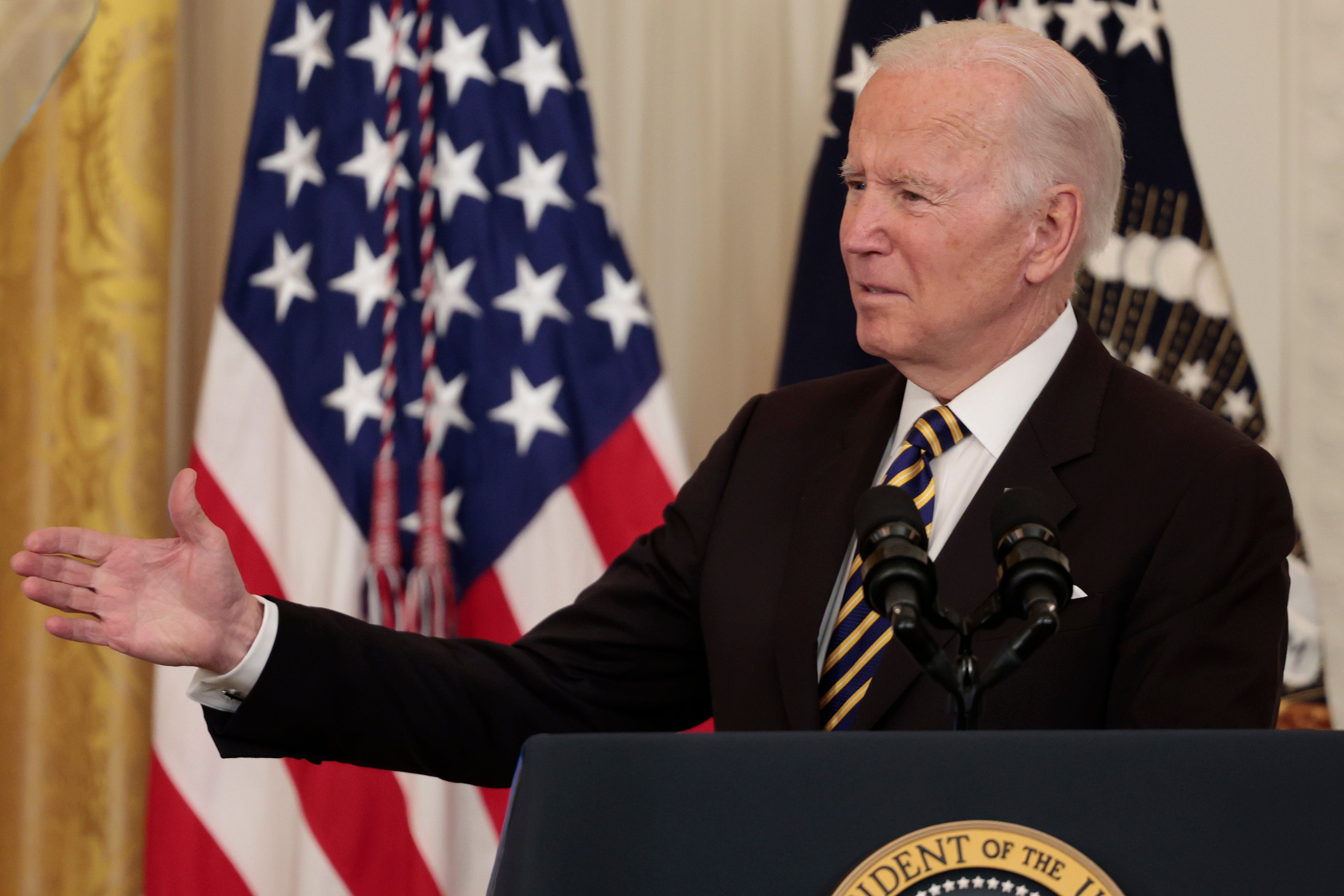US economy shrinks 1.4 per cent as concerns of recession rise
Increased Covid-19 cases, declines in exports and the end of cash payments to individuals all contributed to the decline

Your support helps us to tell the story
From reproductive rights to climate change to Big Tech, The Independent is on the ground when the story is developing. Whether it's investigating the financials of Elon Musk's pro-Trump PAC or producing our latest documentary, 'The A Word', which shines a light on the American women fighting for reproductive rights, we know how important it is to parse out the facts from the messaging.
At such a critical moment in US history, we need reporters on the ground. Your donation allows us to keep sending journalists to speak to both sides of the story.
The Independent is trusted by Americans across the entire political spectrum. And unlike many other quality news outlets, we choose not to lock Americans out of our reporting and analysis with paywalls. We believe quality journalism should be available to everyone, paid for by those who can afford it.
Your support makes all the difference.The US gross domestic product shrank at an annual rate of 1.4 per cent in the first three months of 2022 as concerns about a recession rise.
The news comes as President Joe Biden is trying to stave off anxiety about inflation. Mr Biden mostly pinned the blame on outlying factors in a statement on Thursday.
“While last quarter’s growth estimate was affected by technical factors, the United States confronts the challenges of Covid-19 around the world, Putin’s unprovoked invasion of Ukraine, and global inflation from a position of strength,” he said. Mr Biden also mentioned how consumer spending, business investment and residential investment increased.
White House press secretary Jen Psaki reiterated the president’s stance during a press conference on Thursday, saying there were still very positive data points, such as the rise in consumer spending.
“The number was down but that is largely because our economy is doing better than many economies around the world,” she told reporters. “So while we were purchasing a lot of goods from other countries, there wasn’t the same capacity to purchase our goods. That is why that number was lower and then on inventory, which is another piece of data that is measured.”
The US Bureau of Economic Analysis found that an increase in Covid-19 cases driven by the Omicron variant caused restrictions and disruptions at businesses in some parts of the country. Similarly, government assistance such as forgiveable loans to businesses, grants to state and local governments and enhanced unemployment assistance and the enhanced child tax credit has dissipated. Senator Joe Manchin’s opposition to the expanded child tax credit effectively killed President Joe Biden’s Build Back Better legislation, which would have continued the assistance.
Decreases in private inventory investment, exports and government spending at both the state and local levels all contributed to the decline. One of the main drivers of the decline in private inventory investment was a decrease in wholesale trade for motor vehicles and retail trade for auto dealers.
Decreases in nondurable goods – which includes items like gasoline, food, beverages, clothing and shoes – contributed to the decline in exports, but were offset by an increase in business offerings such as financial services.
At the same time, personal dollar income increased by $268bn in the first financial quarter of 2022, mostly driven by an increase in employee compensation. But it was offset by a decrease in social spending.
The expanded child tax credit expired at the end of December 2021, which meant families did not receive payments for the first three months of 2022. The House of Representatives passed a version of Build Back Better in November that included the child tax credit, but Mr Manchin announced his opposition in December, effectively killing the legislation.
Since then, talks about the credit have stalled.
“I’ve worked half of my senate career, I’ve worked on this, and I’m not stopping until we do it,” Democratic Senator Sherrod Brown of Ohio, one of the tax credit’s proponents, told The Independent on Wednesday. “My prediction is it will be as popular as social security once it’s up and running.”
Personal consumption expenditures increased overall. But the jump was reflected by an increase in services like healthcare, while consumption of nondurable goods like gasoline and other energy declined.
Join our commenting forum
Join thought-provoking conversations, follow other Independent readers and see their replies
Comments